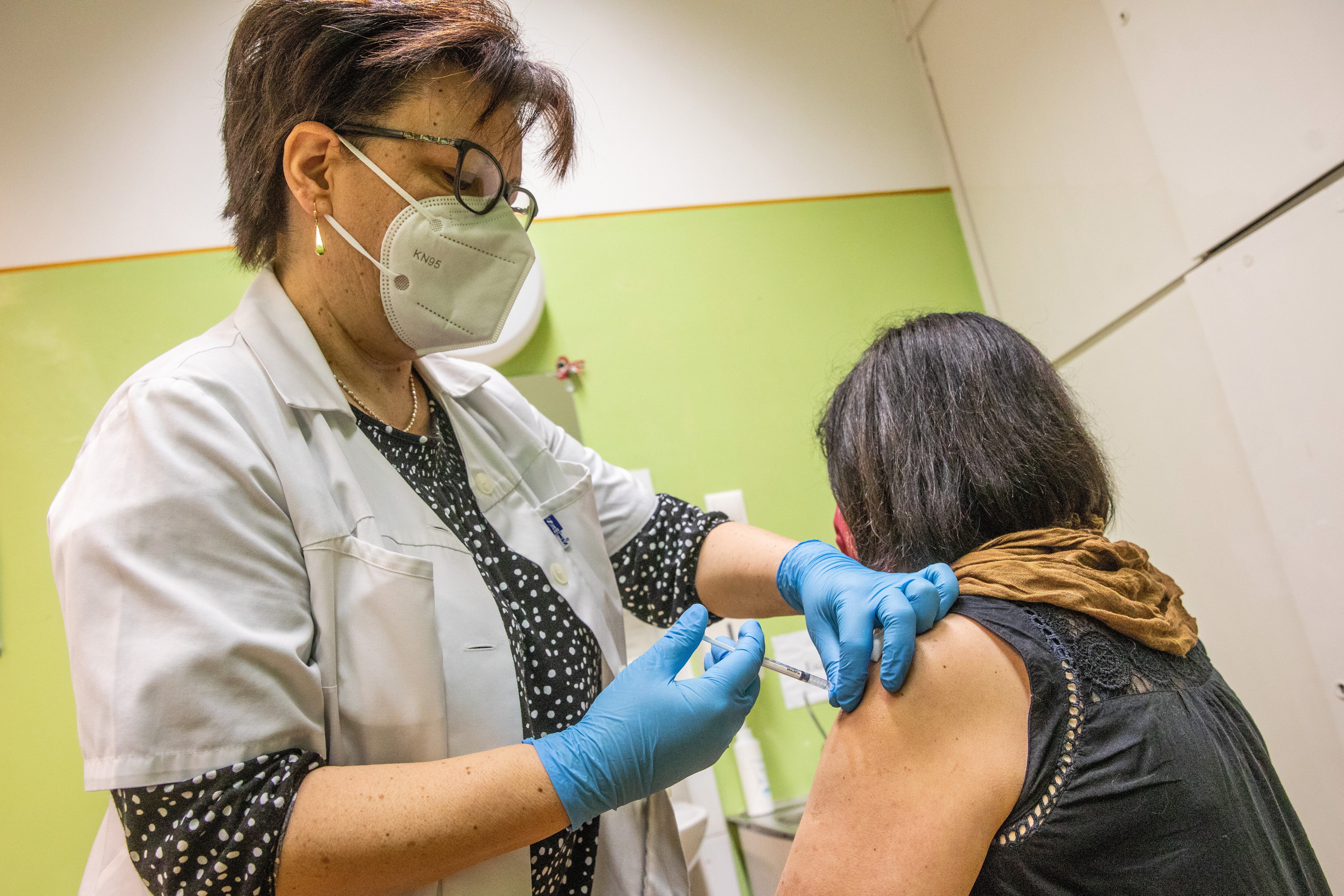Prominent politicians stoke resentment of educators in announcing their prioritization for vaccination
- Stay updated on the latest news from Hungary by signing up for the free InsightHungary newsletter:
After weeks of urging by teachers' unions, the Hungarian government last week announced that educators would be prioritized for vaccination ahead of a planned reopening of schools, even as prominent politicians took swipes at the profession.
A government decree was published Saturday which allows for students to return to schools on April 19, nine days after Prime Minister Viktor Orbán projected that all teachers who register will have received a first dose of a vaccine.
In a Friday radio interview announcing that teachers would be prioritized for vaccination, Orbán praised the importance of the work of educators, but also appeared to stoke resentment of their profession.
"We know that some people criticize teachers on account of their extended summer holidays, and so not everyone in this country is well-disposed to them," Orbán said. "The situation now, however, is that if we want to allow our children back in school – which is important – we must vaccinate teachers. I ask everyone to accept this – including those who may have reservations about teachers."
A day later, Orbán's chief of staff, Gergely Gulyás, criticized the Democratic Union of Teachers for "imagining themselves to be an opposition party" after the union expressed dissatisfaction over the April 19 opening date, arguing that it didn't allow enough time for their first vaccine doses to take full effect.
"There are many who, like teachers, meet a lot of people people every day because of their work, but do not get prioritized for vaccinations," Gulyás wrote on Facebook.
Meanwhile, the government's official coronavirus information website twice declared that the vaccines necessary to inoculate teachers could only be secured "be reallocating vaccine kits intended to go to the elderly," a distinction that was not emphasized when soldiers, police, politicians, border guards, public transit and critical infrastructure workers were earlier prioritized for vaccination.
Orbán to host Polish PM and Italian right-wing leader in Budapest
Prime Minister Viktor Orbán will host his Polish counterpart, Mateusz Morawiecki, and former Italian interior minister Matteo Salvini in Budapest Thursday to discuss a potential right-wing alliance on the European level, Orbán's press secretary confirmed Tuesday.
Orbán announced on March 19 that he had been in contact with the Eurosceptic politicians following Fidesz's resignation from the center-right European People's Party the previous day, leading to speculation that a new far-right political force was in the making.
Now without a caucus in the European Parliament, Fidesz is seeking alliances on the European level, and Orbán's meeting with Morawiecki, of the ruling Law and Justice (PiS) party, and Salvini of Italy's Lega, could signal the beginning of an effort to draw those parties into a new right-wing caucus in the EU legislature.
Currently, Poland's ruling PiS is the largest member of the European Conservatives and Reformists (ECR), a nationalist grouping of parties that also includes Brothers of Italy, Spain's Vox, and, formerly, the United Kingdom's Conservatives. Salvini's Lega dominates the hard-right Identity and Democracy, whose caucus includes Germany's far-right Alternative für Deutschland and France's National Rally under Marine Le Pen.
The two European groupings have been divided over a number of issues, most notably their differing approaches to relations with Russia. While anti-Russian parties from Central Europe dominate in the ECR, Salvini and Le Pen maintain close ties to Moscow and have been accused of taking Russian money to fund their campaigns. Furthermore, Orbán has in the past rejected the prospect of working with Le Pen.
However unlikely, if the European Parliament delegates of the ECR (61), ID (76) and Fidesz (12) were to join into a single caucus, it would make them the second-largest in the legislature with 149.
Website for confirming vaccine registration crashes, government claims cyber attack
Hungary's government last Thursday launched a webpage where individuals may check whether they have successfully registered to receive a Covid-19 vaccination, but many users found the site unresponsive for several hours which officials later attributed to a cyber attack.
The site was launched amid uncertainty among some Hungarians over whether their online vaccine registration had been successfully submitted. Upon registering, users do not receive an email, text message, or any other confirmation that they have been recorded in the system. Many reported finding that they did not appear on their doctors' list of patients to be vaccinated despite having registered, and elderly Hungarians, who were given the option to register by mail, have also reported problems.
Following the crash of the new website, the Emergency Task Force announced that the page had been the target of "more than 600,000 cyberattacks" from Hungary and abroad, making it temporarily unavailable.
"It is not in the interests of many people for the Hungarian vaccination program to go well," the government's Covid-19 Facebook page wrote on Friday.
The National Health Insurance Fund of Hungary, which operates the page, has launched a complaint with investigators.
Two weeks ago, 444 spoke to several IT experts concerning the vakcina.gov.hu registration website, each of which said that "first-year computer science students receive more complicated homework assignments" than the design of the page.
European Commissioner for Human Rights blasts Hungary for undermining media freedom
"It is high time for Hungary to restore journalistic and media freedoms," the Council of Europe Commissioner for Human Rights, Dunja Mijatović, wrote in a memorandum published Tuesday.
The document, which condemned Hungary's government for having "systematically undermined independent and professional journalism," was the product of online consultations with the Hungarian authorities, national human rights structures, and representatives of Hungary’s civil society and media community held between 29 January and 4 February 2021.
A summary of the memorandum can be read here.
Mijatović wrote that the government's distribution of state advertising in media outlets was "based on political allegiances," and that "the Hungarian Media Council, whose members are all chosen by the ruling party, have dismantled the level playing field for the media and curbed freedom of expression in Hungary."
"The effects are noticeable across Hungarian society, including in relation to academic freedoms and culture," she continued, a reference to recent government efforts to reshuffle the leadership structure in Hungary's largest universities by placing them under the control of government-appointed committees.
The Commissioner also criticized the professionalism of public service and pro-government media, and the "growing obstructionism and targeted interference with the work of the independent media and investigative journalists." She called on authorities to recognize the threat hate speech against journalists represents to society as a whole and to publicly condemn all incidents of it.
The state of emergency called in response to the coronavirus pandemic, she wrote, "led to a striking chilling effect on judges and public officials, on civil society organizations engaged in the defense of human rights, and on marginalized groups.”
In a lengthy response, the Hungarian government wrote that it was "disappointed that the memorandum is based on presumptions and allegations instead of facts," and alleged that the document "extensively relies on a handful, but well known government critical NGOs’ analysis and online news portal articles, which raise doubts with regard to the objectivity of the memorandum."



